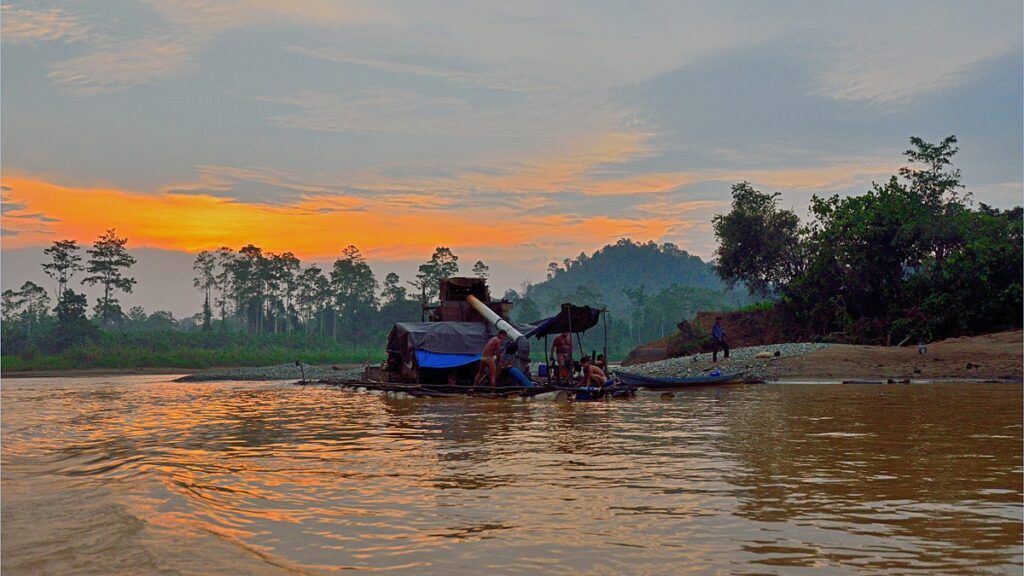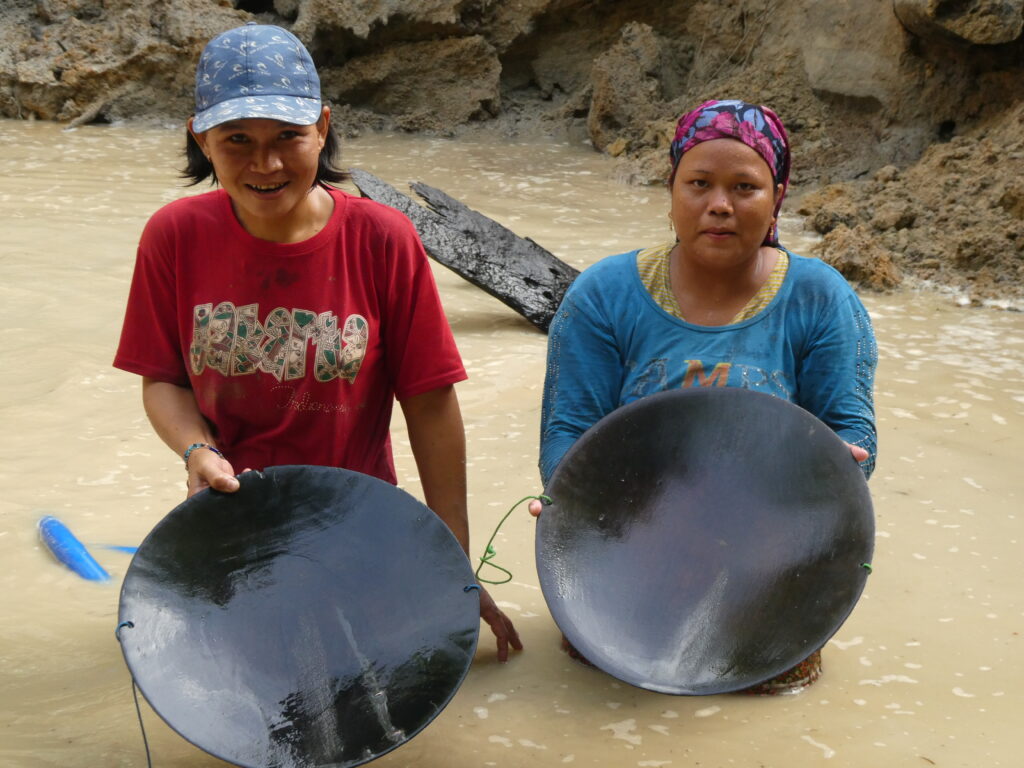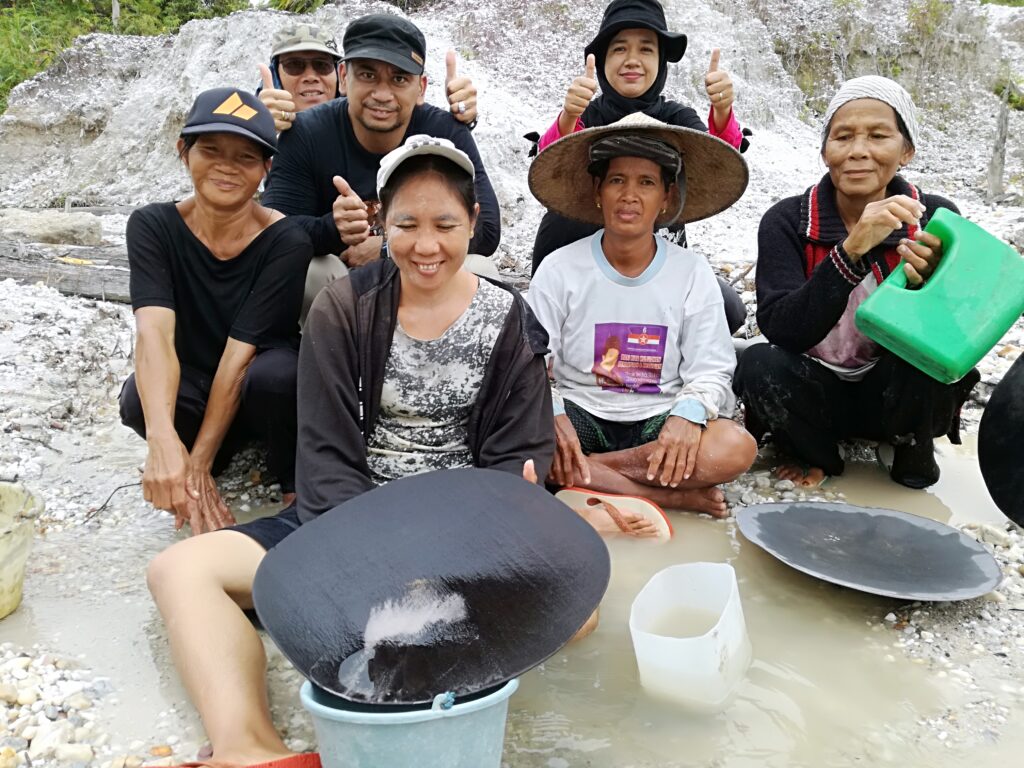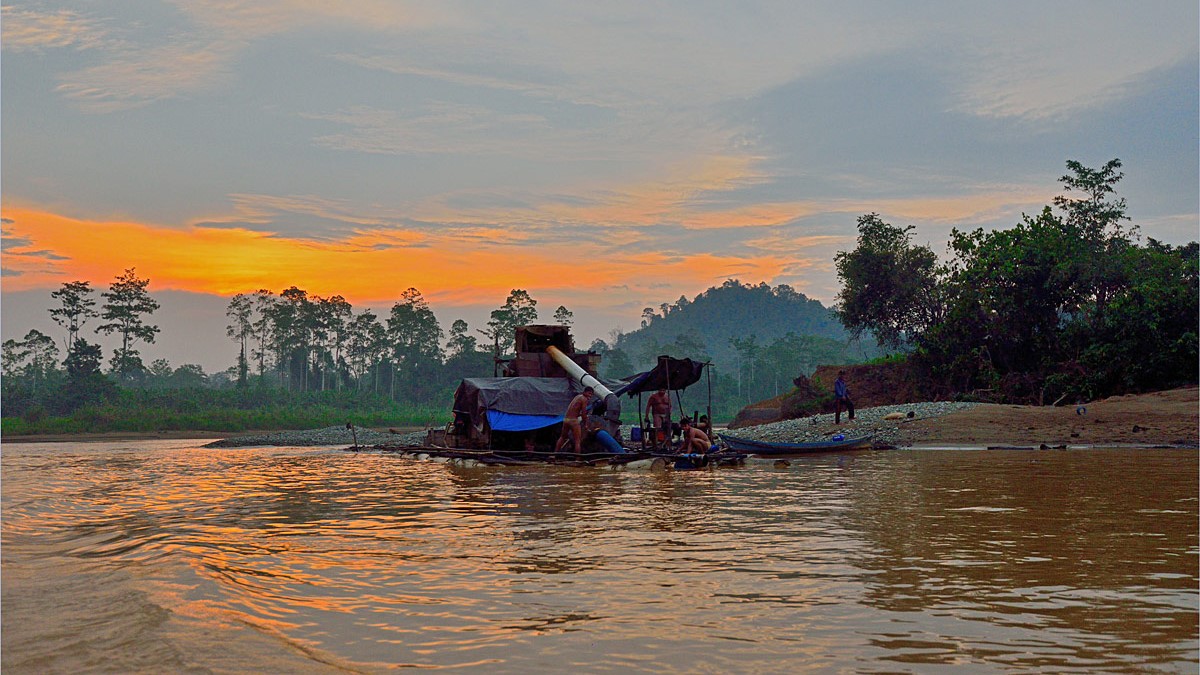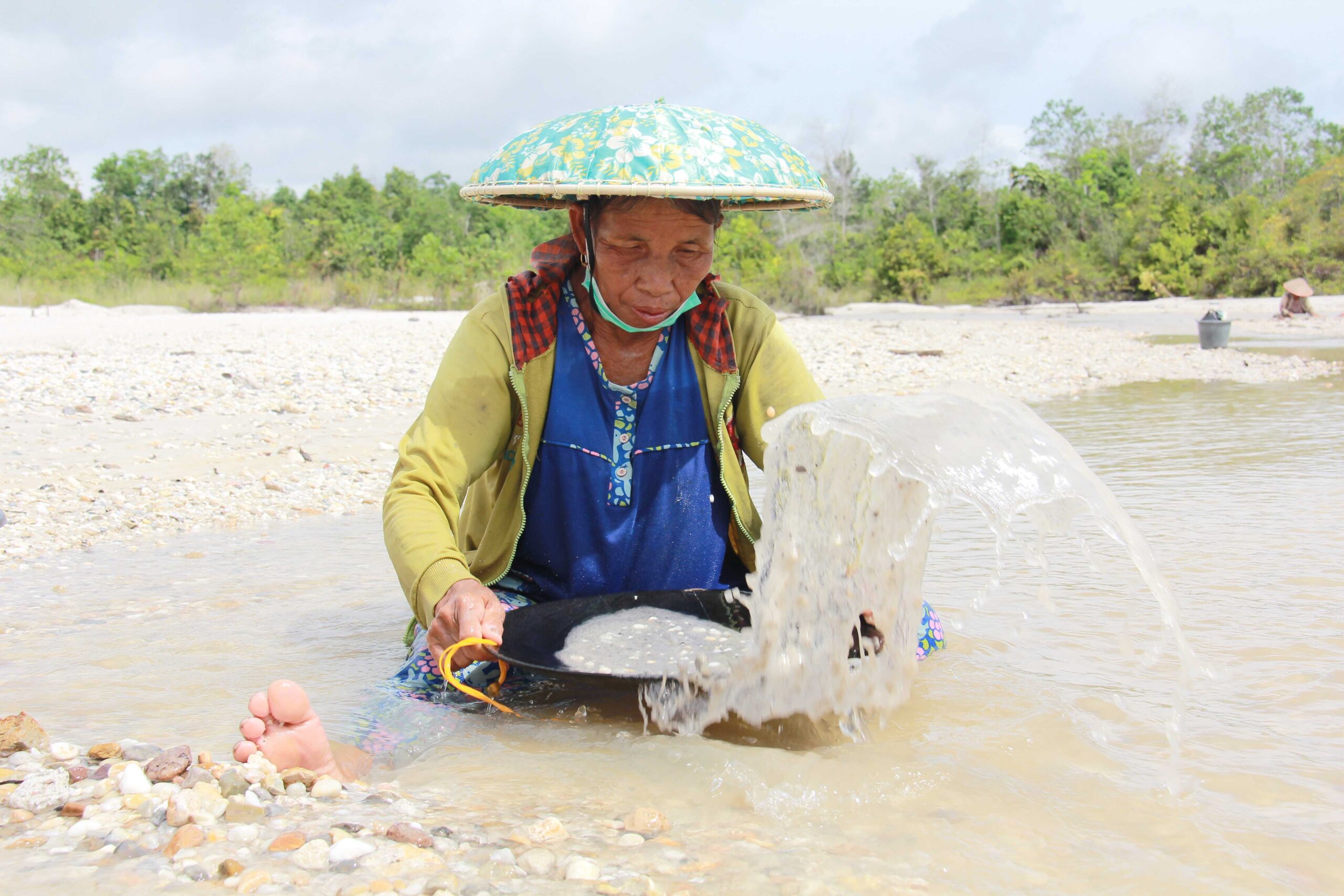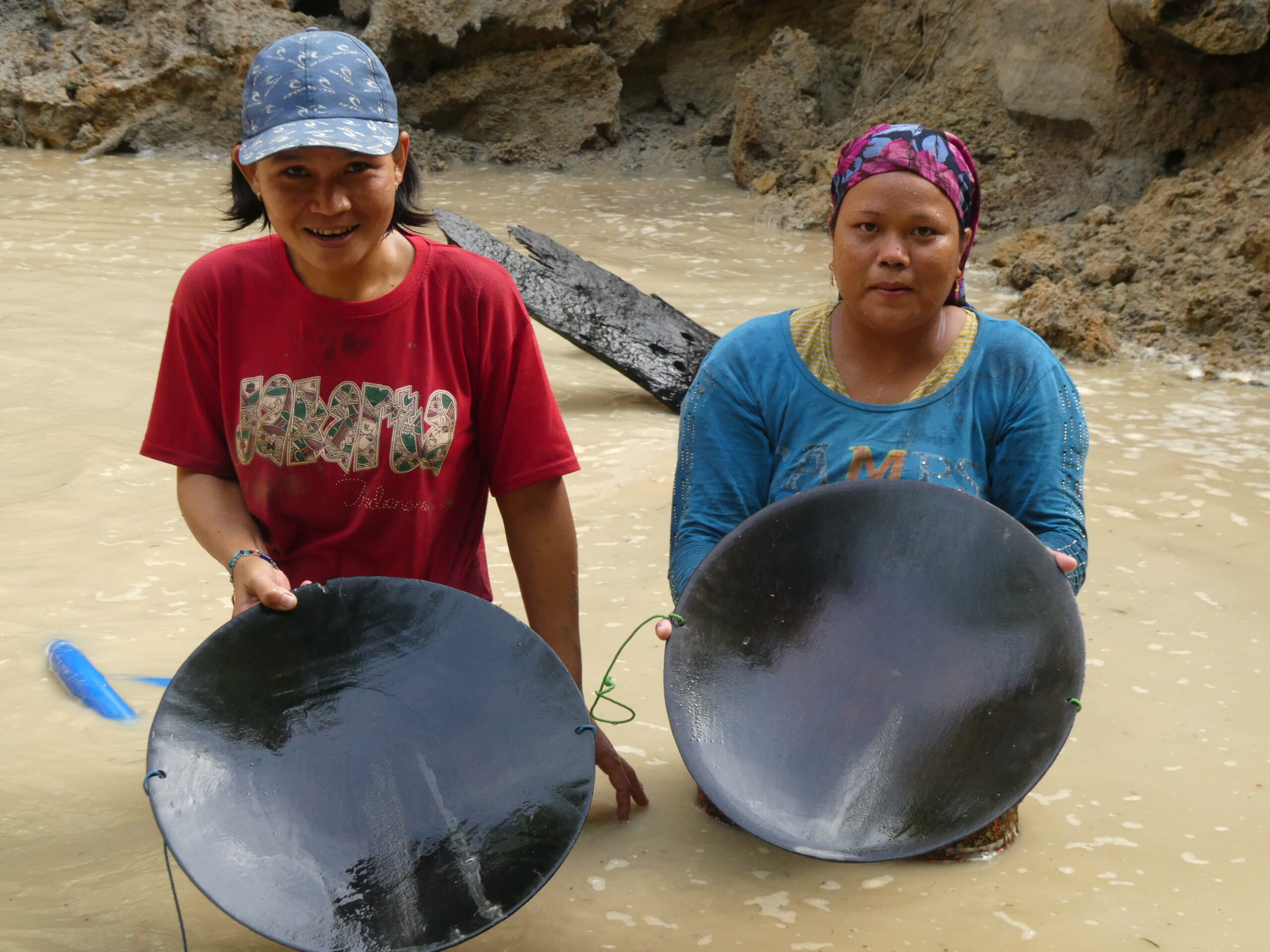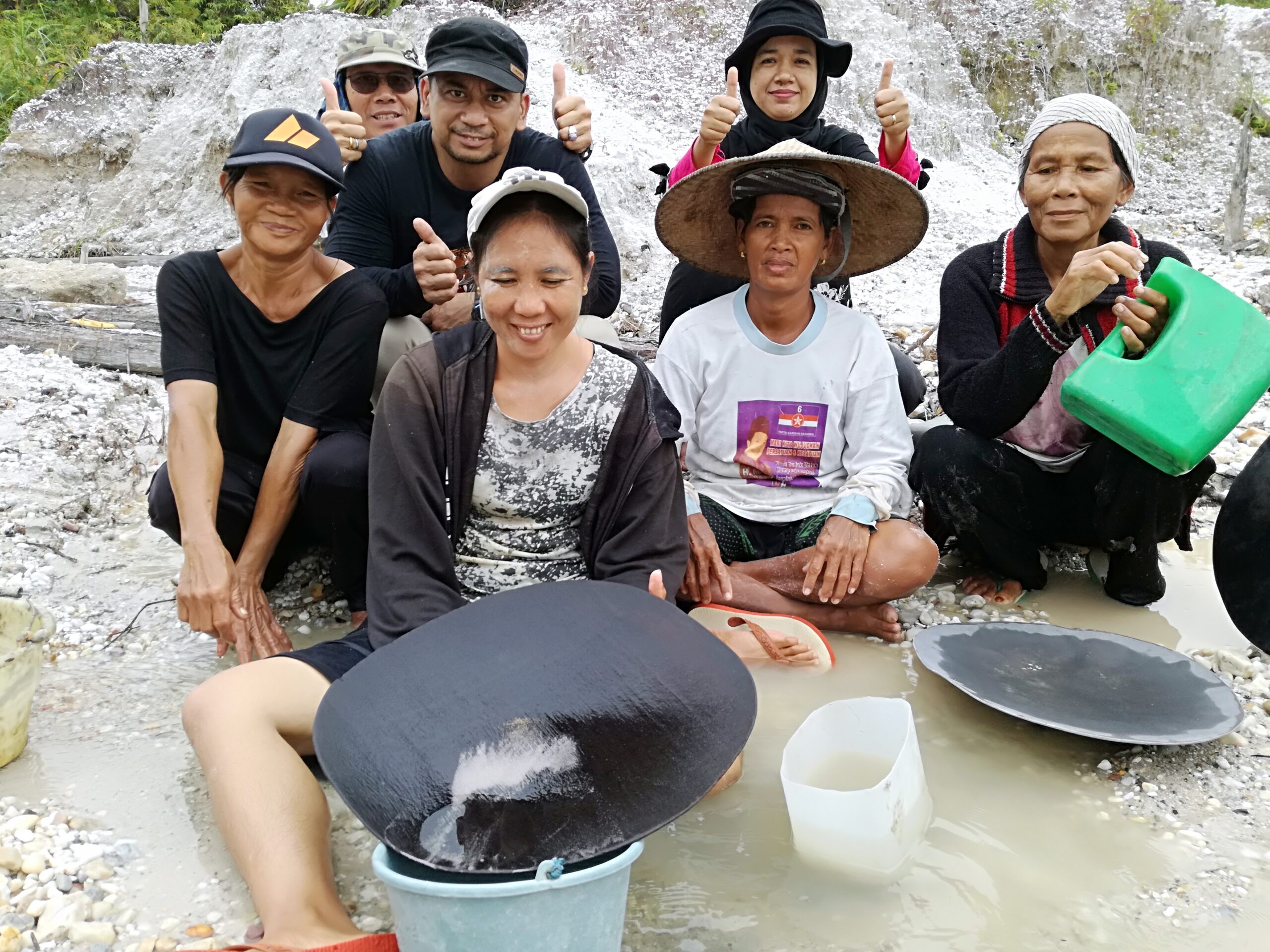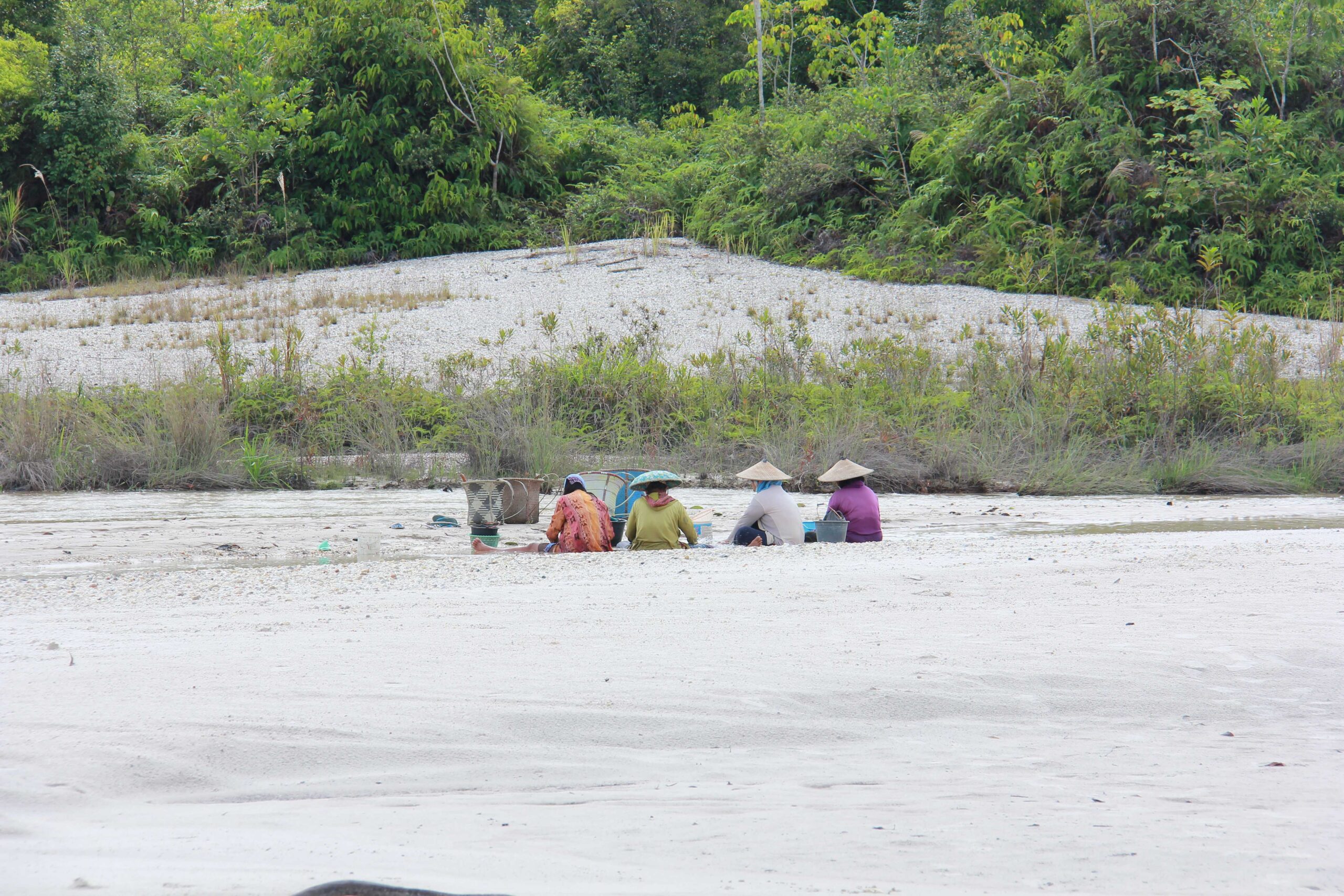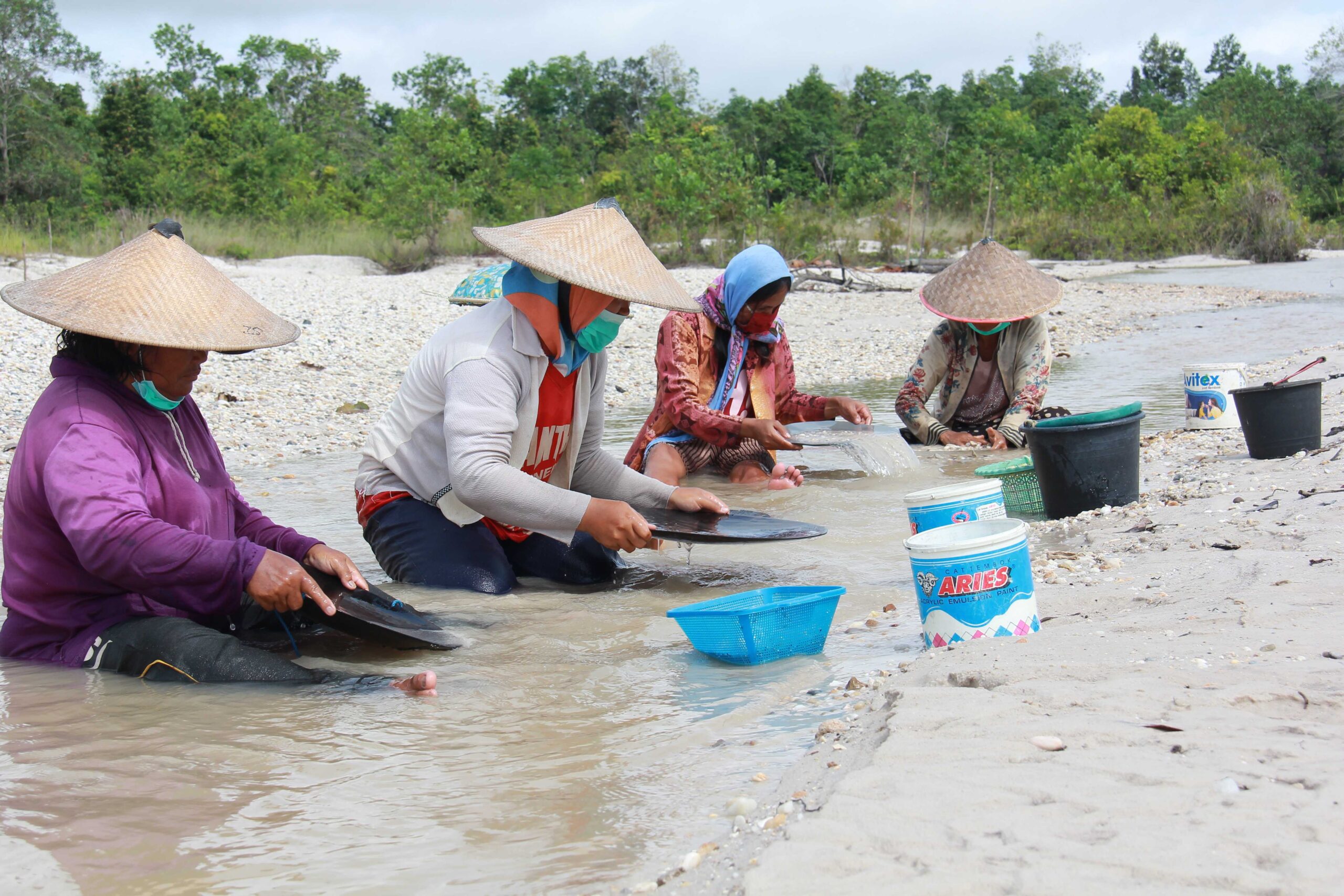ASGM Projects
YTS has worked with a large number of international donors to deliver a wide array of ASGM project in Indonesia since 2006. These projects can be summarised as follows:
UNIDO Global Mercury Project (UNIDO/UNDP) 2006-2007: YTS conducted a widespread health awareness campaign to the general public, coupled with provision of training to gold processors in the use of appropriate technology to reduce the volume of mercury emissions and introduce technology for the recycling of mercury. Field activities included an investigation into the behaviours surrounding mercury release, an awareness campaign, roving demonstrations in the goldfields, training and workshops, and action research leading to interventions in urban gold shops – preventing the release of many tonnes of mercury fumes into the atmosphere. YTS also developed district government capacity and regulatory mechanisms to reduce mercury pollution. The project increased local awareness about mercury pollution among miners, government and the public. Specifically, YTS improved the health and well-being of residents of the town of Kereng Pangi by reducing the dangerous levels of local atmospheric mercury pollution.
The Blacksmith Project (Blacksmith Institute/Pure Earth) 2007-2015: YTS distributed mercury-recycling equipment in the form of portable retorts for miners and fixed mercury condenser systems for gold shops. This program of interventions began by focusing on one heavily-contaminated site, but then spread to cover seven regencies in Central Kalimantan. The main focus of the program was to reduce mercury emissions by distributing equipment and providing training in situ. This was done in conjunction with community health awareness-raising, especially for male miners as well as for locally-affected women and children.
Implementation of Training & Capacity Building in Indonesia (UNEP) 2015: YTS focused on building the capacity of the Government of Indonesia for implementation of the National Action Plan on Mercury in ASGM, both through stakeholder consultations and through demonstrations of appropriate technology. YTS conducted a demonstration project on zero mercury processing in East Java in tandem with health awareness raising, and trained eighty miners in gravity concentration and separation methods for gold recovery.
Mitigating Mercury Emissions from ASGM in Indonesia (UNEP/USEPA) 2011 – 2013: YTS sought new methods to reduce mercury emissions from tailings through both action research and direct interventions. YTS conducted field demonstrations and training-of-trainers for miners; public health awareness campaigns; seminars and educational fieldtrips; and produced a variety of related media products. YTS introduced gravity concentration and separation techniques; prepared the content for miner training modules, seminars and national workshops; conducted monitoring and evaluation, and prepared a final report. YTS worked in close collaboration with both the Ministry of Environment and Ministry of Energy and Mineral Resources.
GAHP Project (Global Alliance on Health & Pollution) 2013 – 2015: YTS introduced zero-mercury techniques to artisanal gold miners through field demonstrations and training-of-trainers. Conducted a widespread public health awareness campaign at mine sites in Java, Lombok, Sulawesi and Kalimantan.
Canadian Government (DFAT): YTS worked to develop an environmentally-sound, more socially-responsible, and more formalized ASGM sector in Indonesia. This was achieved by improving small-scale mining and business management practices in ASGM, and working to increase the capacity of local, regional and national governments to implement better policies including environmental health and gender, and to build legal and transparent supply chains that bring responsible artisanal gold to international markets.
Planet Gold Indonesia (UNDP/GEF): YTS worked to develop policy and regulations to allow the operation of licensed artisanal and small-scale gold mining at a range of sites in Indonesia.

